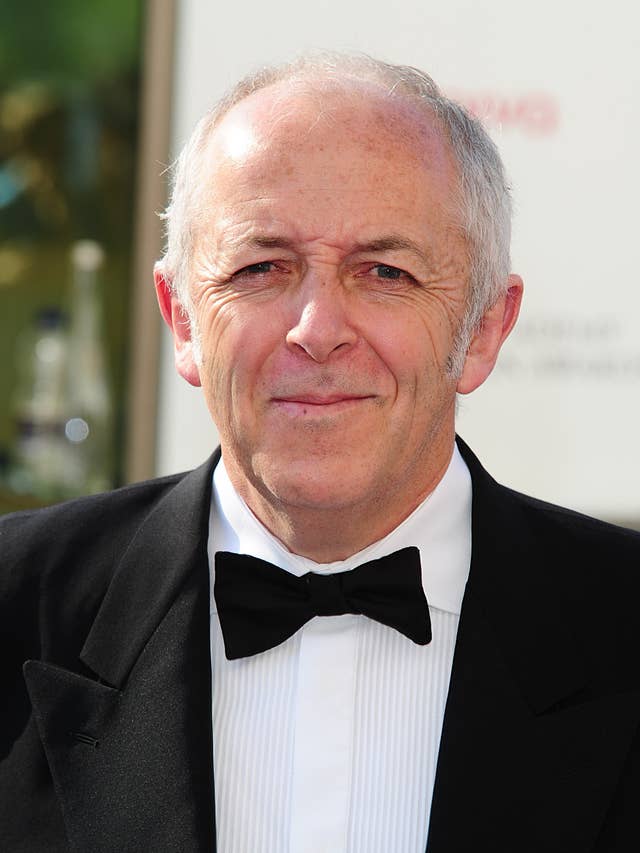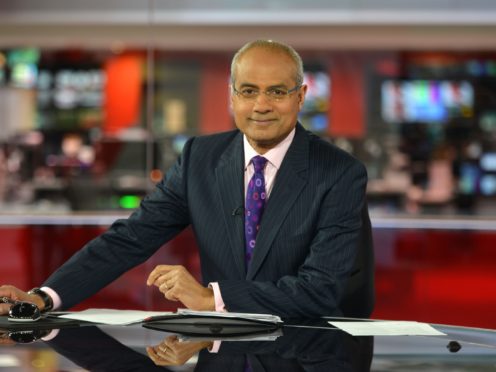George Alagiah has spoken about how “tough” it was to discover his bowel cancer had returned.
The BBC newsreader, 63, underwent 17 rounds of chemotherapy to treat advanced bowel cancer in 2014 before returning to presenting duties in 2015.
His cancer later returned and the presenter underwent further treatment.
Today @bowelcanceruk launch their first podcast episode, which sees me interview @bowelbloke and @deborahalsina about living well with advanced bowel cancer. Listen here: https://t.co/pl6IumdHxt #thisisbowelcancer
— George Alagiah (@BBCAlagiah) April 11, 2019
In a new podcast, In Conversation With George Alagiah, he speaks candidly about his treatment and living with the disease.
He reveals that he has a mantra, which he repeats every evening, saying: “I ask myself if I’ll be here tomorrow, and for the past few years I’ve answered ‘Yes’.”
But Alagiah, who has stage four bowel cancer, says of the disease returning: “I found it harder the second time round. I got seduced into the idea that I was the guy who made it.
“So to be told it had come back was quite tough.”
Speaking of the extreme fatigue he experienced during chemotherapy, he says: “There were days I’d call the sofa days when I just sat on the sofa.
He adds: “It’s easier for us as patients then it is for those around us. I’ve limited my life right down to 24 hours ahead, ‘Can I do what I need tomorrow? Yes I can.’
“Whereas for my wife and our sons, they are looking ahead, they’ve got their own lives to lead. But they also feel that they have to care for me and be sensitive to my needs as well.”
The BBC journalist hosts the first series of Bowel Cancer UK’s podcasts, interviewing supporters and leading experts on the disease, as well as discussing his own treatment and diagnosis.
Bowel cancer is the UK’s fourth most common cancer and second biggest killer cancer with more than 16,000 people dying from the disease every year, the charity said.
But it is treatable and curable, especially if diagnosed early.

Veteran BBC journalist Jeremy Bowen, 59, recently revealed that he is also suffering from the condition despite having none of the “classic” symptoms, after getting pains in his legs and back.
Deborah Alsina, chief executive of Bowel Cancer UK, said: “We’re so incredibly grateful to George for hosting our first series of podcasts to raise awareness of the disease during Bowel Cancer Awareness Month.
“Our podcasts form part of our #thisisbowelcancer campaign, which aims to shine a light on the varied and many people affected by the disease.”
In Conversation With George Alagiah: A Bowel Cancer UK podcast, with Matthew Wiltshire, can be found at www.bowelcanceruk.org.uk/podcasts.
